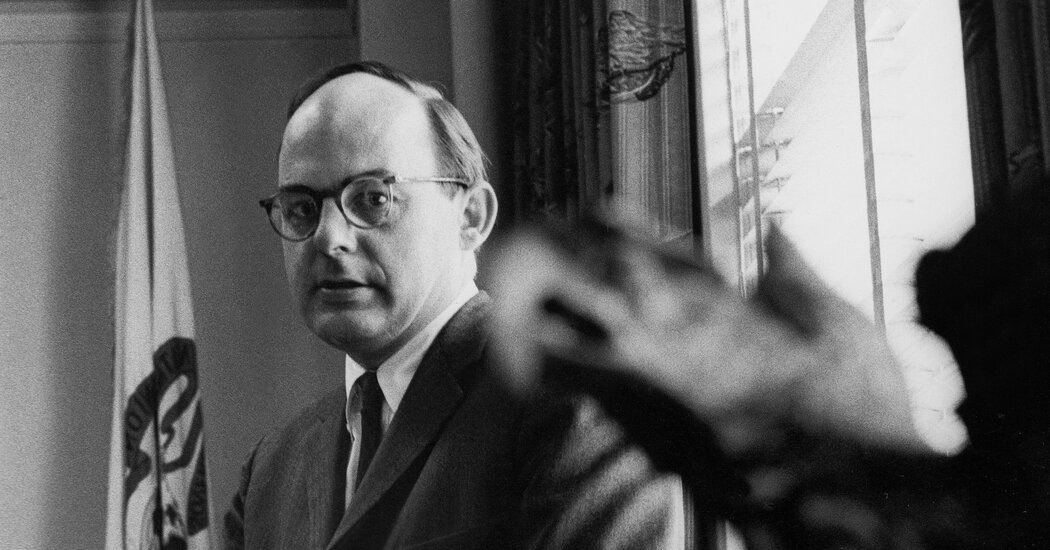Moving where their father’s political career took the family, Adlai III attended five grade and preparatory schools, including public schools in La
Moving where their father’s political career took the family, Adlai III attended five grade and preparatory schools, including public schools in Lake Forest, Ill.; Harrow, in England, when his father worked there with a United Nations group; and Milton Academy, in Massachusetts, from which he graduated in 1948. (Edward M. Kennedy, who was about 16 months younger than Mr. Stevenson, was a Milton schoolmate.)
After earning a bachelor’s degree in government from Harvard in 1952, Mr. Stevenson joined the Marine Corps, attended Officer Candidate School and arrived in Korea with a tank unit just after the truce in 1953. He mustered out as a first lieutenant in 1954. He married Nancy Anderson, who survives him, the next year.
In addition to her and their son Adlai, he is survived by another son, Warwick; two daughters, Lucy and Katherine; his brothers; and at least nine grandchildren.
Mr. Stevenson graduated from Harvard Law School in 1957. After serving as a law clerk for an Illinois Supreme Court justice in 1958, he joined and later became a partner in a prestigious Chicago law firm, Mayer, Brown & Platt.
His political career began in 1964. Elected to a seat in the Illinois House of Representatives, he sponsored 84 bills in two years, including measures to control lobbying and conflicts of interest in government, a graduated state income tax and credit reforms. The Independent Voters of Illinois, a nonprofit group, named him the house’s “best legislator.”
Mr. Stevenson went on to be elected Illinois state treasurer, serving from 1967 to 1970. In what might have been a routine post, he eliminated staff patronage, withdrew state funds from banks that practiced racial or religious discrimination, and put money in Black-owned banks to finance small business, low-income housing and urban development.
After quitting active politics in 1986, he resumed practicing law, but in the 1990s he became president and chairman of SC&M Investment Management and later a co-founder of HuaMei Capital, both specializing in financial transactions between the United States and East Asia.
www.nytimes.com
